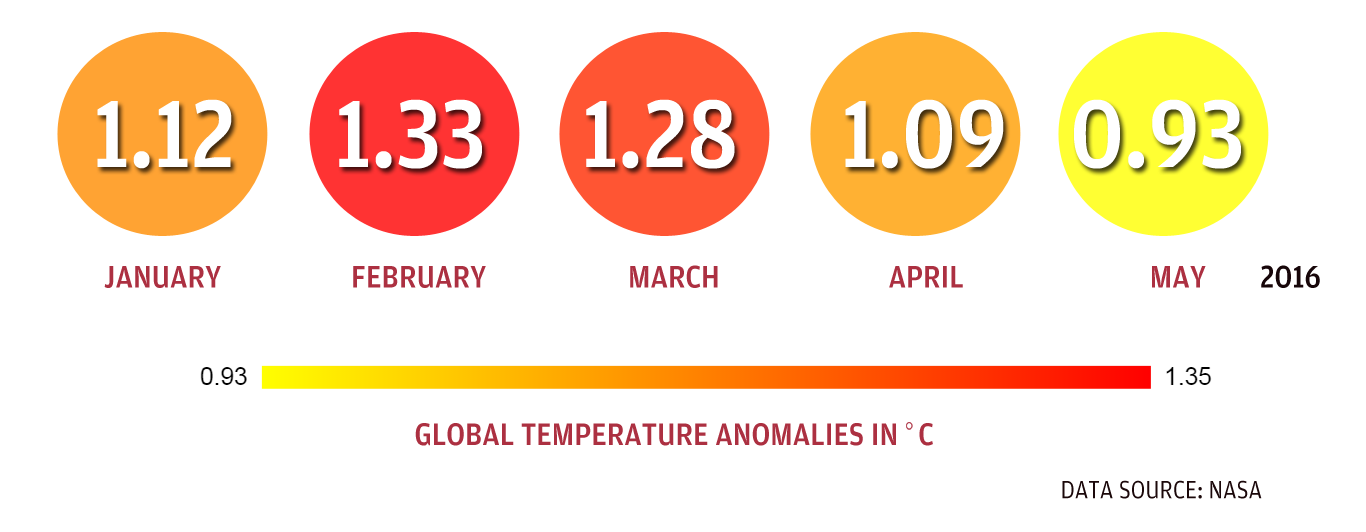
Global Land-Ocean Temperature Index in 0.01 degrees Celsius base period: 1951-1980
Sources: GHCN-v3 1880-05/2016 + SST: ERSST v4 1880-05/2016
Divide by 100 to get changes in degrees Celsius (deg-C).
Multiply that result by 1.8(=9/5) to get changes in degrees Fahrenheit (deg-F).

 The scorching temperatures mean 2016 is all but certain to be the hottest year ever recorded, beating the previous hottest year in 2015, which itself beat 2014. This run of three record years is also unprecedented and, without climate change, would be a one in a million chance. Scaife says: "Including this year so far, 16 of the 17 warmest years on record have been since 2000 – it's a shocking statistic."
The scorching temperatures mean 2016 is all but certain to be the hottest year ever recorded, beating the previous hottest year in 2015, which itself beat 2014. This run of three record years is also unprecedented and, without climate change, would be a one in a million chance. Scaife says: "Including this year so far, 16 of the 17 warmest years on record have been since 2000 – it's a shocking statistic."